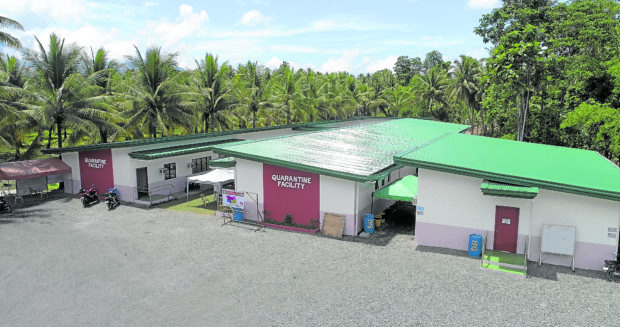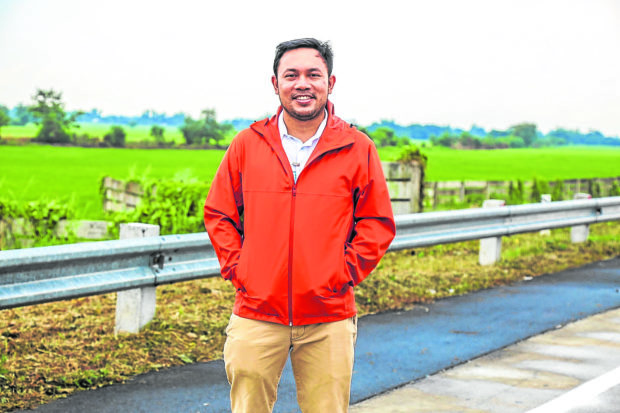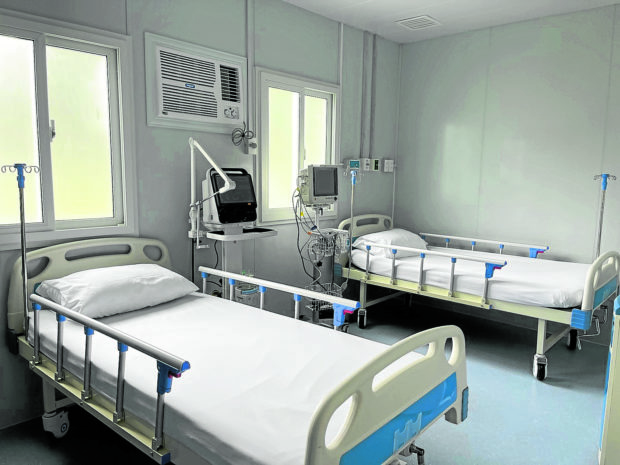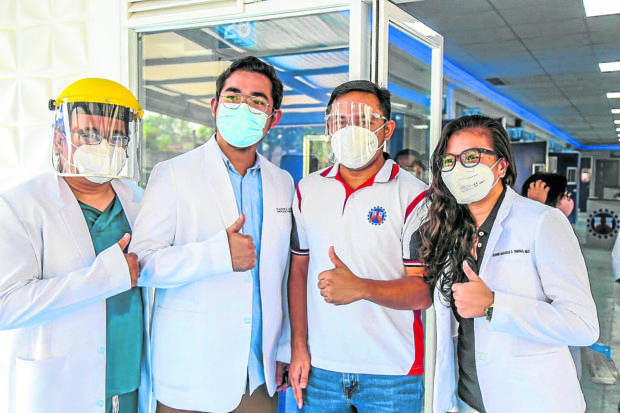DPWH’s Villar builds essentials to boost PH COVID-19 response

Villar embarked on a massive program that saw the building of new and upgrading of existing facilities as isolation centers.
Like everyone else, he, too, was not spared from the challenges and afflictions that drastically upended lives amid the highly unprecedented COVID-19 pandemic.
In fact, Public Works and Highways Secretary Mark A. Villar even tested positive for the new coronavirus in July last year as he continued to personally oversee key public infrastructure projects even at the height of the pandemic—knowing all too well that these initiatives would soon be critical to the job security of millions of Filipinos and the country’s eventual recovery.
Villar admitted that it hasn’t been easy, as this devastating health crisis had taken a huge toll on all economic activities including construction, prompting them to roll out new health protocols, additional guidelines and support to ensure the safety of all those working on their projects.
He, however, knew that this was not enough. While Villar was aware of how industries and sectors are suffering, he also saw how the country’s healthcare system has been reeling heavily under the massive, crushing weight of the pandemic.
Achieving targets
Rising above the challenges to effectively fulfill his job as the Chief Isolation Czar, Villar thus embarked on a massive program that saw the building of new and retrofitting/upgrading of existing facilities as isolation centers. He had set in July last year a goal of building 770 “We Heal as One” facilities with a bed capacity of 28,534.
Article continues after this advertisementToday, the Department of Public Works and Highways (DPWH) is nearing 100 percent completion, having swiftly built 739 centers with 27,302 beds—much needed public facilities that would aid the country in its fight with this still raging pandemic.
Article continues after this advertisementThese were built not only in the capital region, but also in the provinces, as Villar ensured that these facilities—comprising of mega community quarantine or isolation facilities, offsite dormitories and modular hospitals—would be accessible to all Filipinos.
For the DPWH chief, this, by far, is one of his agency’s greatest accomplishments.
“Given everything, we are proud of our substantial completions for (We Heal as One facilities). We are able to augment the capacity of existing COVID-19 facilities as we’ve put up dormitories and modular hospitals. That’s another contribution of the DPWH not only to the Build, Build, Build initiative, but also to the COVID-19 pandemic response of the government,” Villar said.
No doubt, Villar and his team at the DPWH have truly stepped up beyond the call of duty. One need only to see these facilities rising at record pace to know that Villar is steering his agency to become a force for good and recovery amid the pandemic.
Continuing efforts
Just last week, Villar vowed to have more health facilities built to aid hospitals that have been overwhelmed due to a recent surge in COVID-19 cases. An Inquirer report stated that apart from quarantine/isolation facilities and dormitories for hospital workers, the DPWH is now focusing on the construction of modular hospitals that can accommodate patients with severe symptoms.
“With the recent spike of cases and deaths, these modular hospitals are needed now more than ever, especially in the National Capital Region with ICU bed occupancy rate at high risk,” Villar was quoted as saying.
On top of these, the DPWH earlier built mega temporary treatment and monitoring facilities (TTMFs) that have a total of 3,363 beds, 30 percent of which are currently occupied. These complemented similar facilities that are being managed by local government units. Based on the DPWH’s tally, there are currently 9,194 LGU-managed TTMFs across the country, with an aggregate bed capacity of 137,045.
Always going beyond the call of duty, Villar has indeed shown that his works do not merely end with every completed highway, byways and other essential infrastructure.
As a leader and a true servant of the Filipino people, Villar has found ways to ensure that the welfare of every Filipino would be a priority—be it in ensuring a comfortable drive or commute for everyone, or providing access to crucial public health facilities especially at this time when the country is facing its greatest battle to date—the war against COVID-19.
For more news about the novel coronavirus click here.
What you need to know about Coronavirus.
For more information on COVID-19, call the DOH Hotline: (02) 86517800 local 1149/1150.
The Inquirer Foundation supports our healthcare frontliners and is still accepting cash donations to be deposited at Banco de Oro (BDO) current account #007960018860 or donate through PayMaya using this link.


